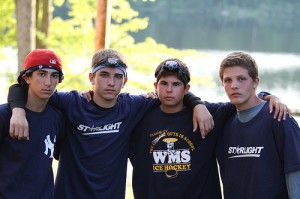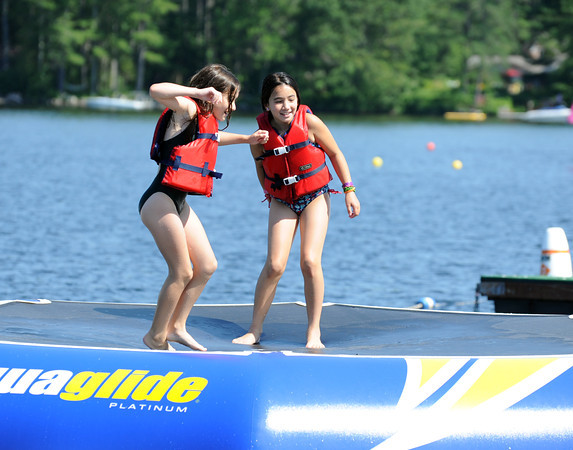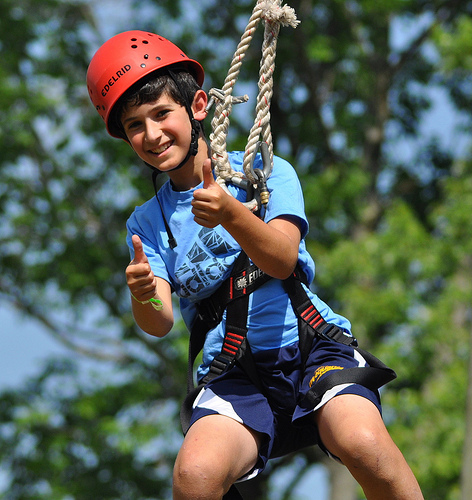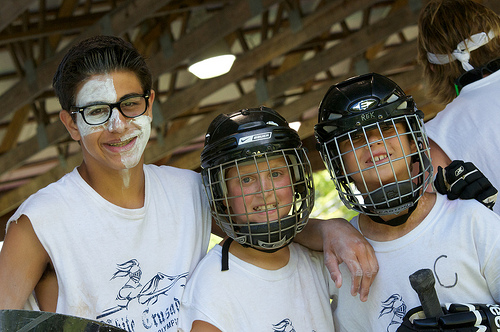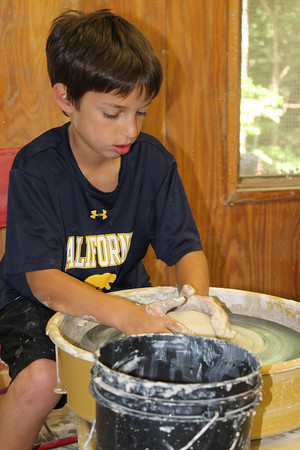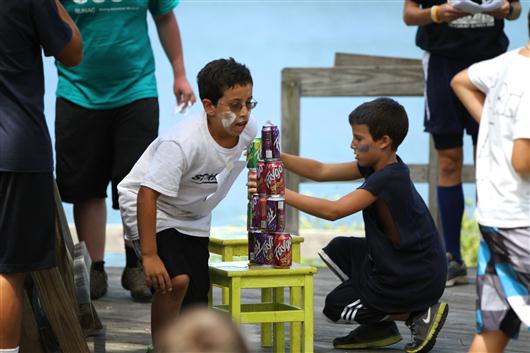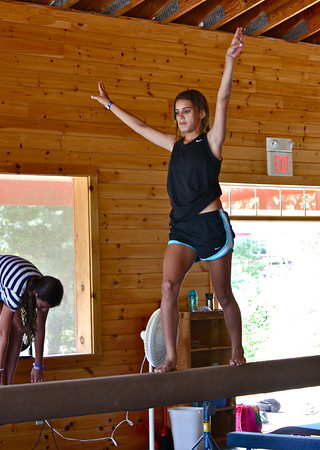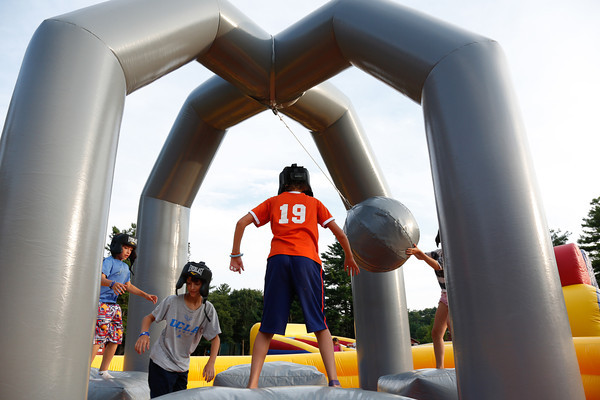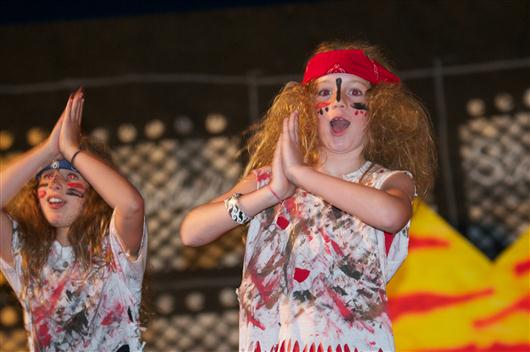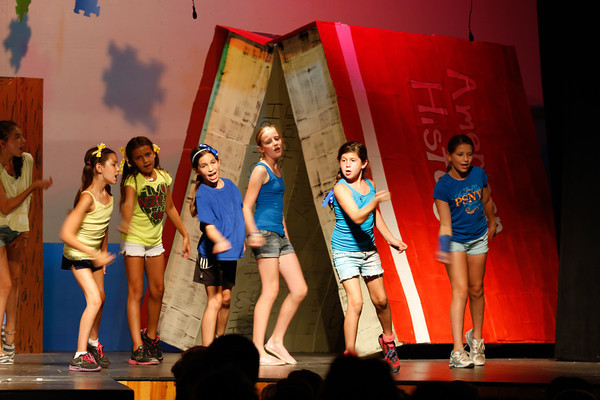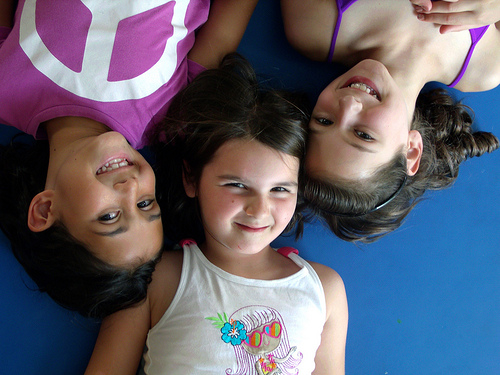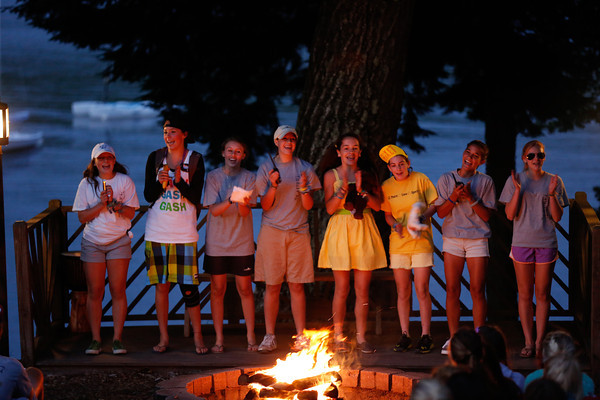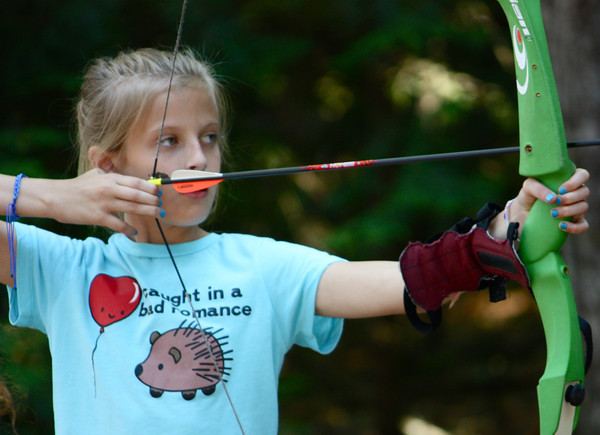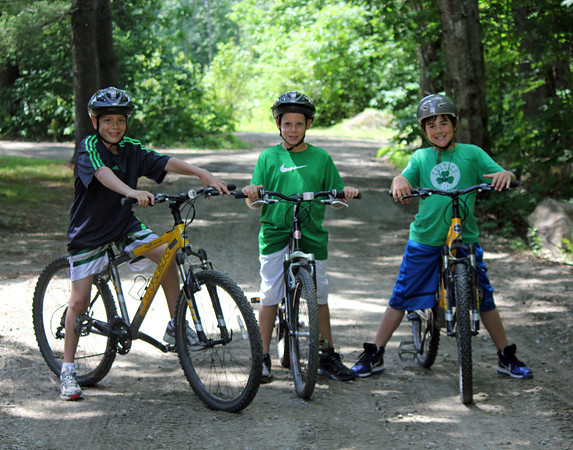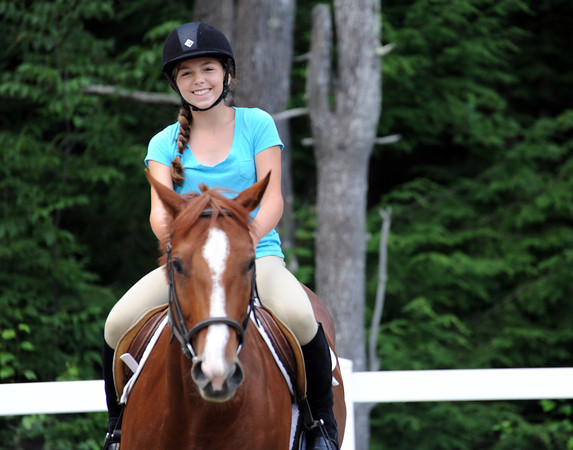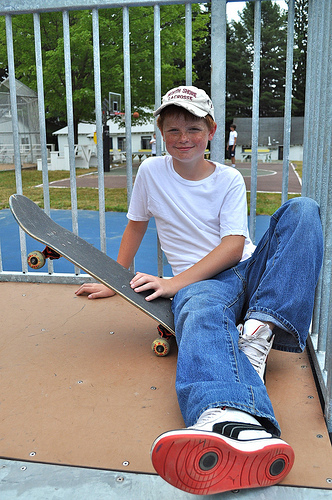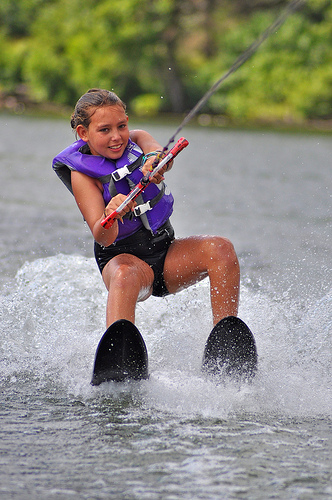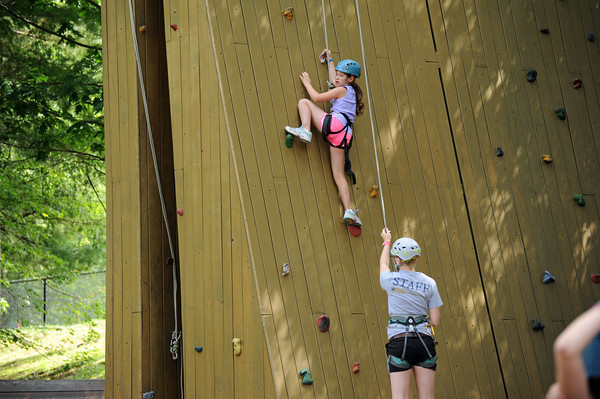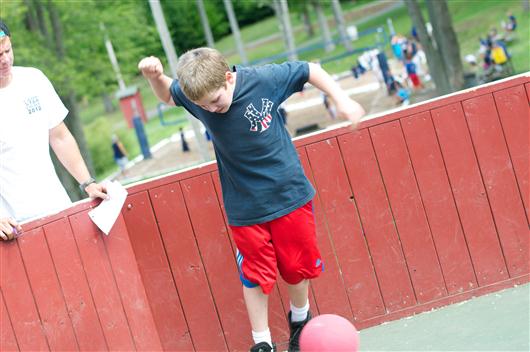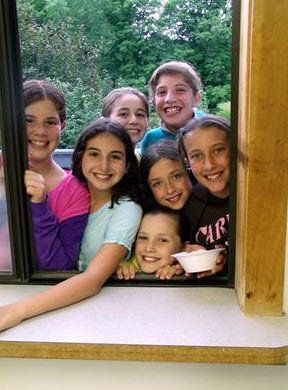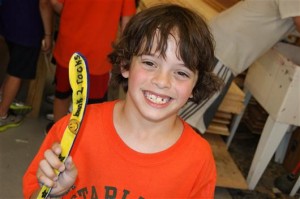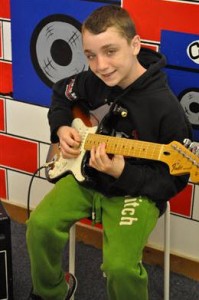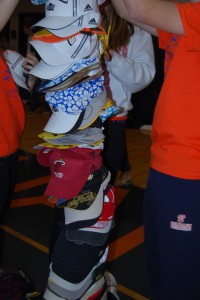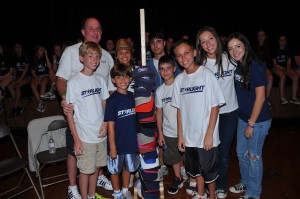The guest blog this week was originally posted to the Camp Starlight blog on April 17, 2013.
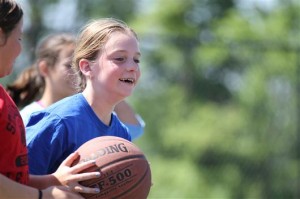 Resilience is the ability to adapt quickly to change or bounce back from setbacks. In addition to the many benefits available to a child who attends summer camp, one that proves invaluable for many years afterward is gaining resilience as a life skill. In the everyday happenings of summer camp, a camper is given many opportunities to exercise their independent thinking skills on many levels. They find themselves in an environment that not only provides the situations to obtain these skills but also fosters growth within the individual. Perhaps the most effective part of this development, as with many of the lessons learned in camp, is that in the moment it hardly feels like a “lesson.”
Resilience is the ability to adapt quickly to change or bounce back from setbacks. In addition to the many benefits available to a child who attends summer camp, one that proves invaluable for many years afterward is gaining resilience as a life skill. In the everyday happenings of summer camp, a camper is given many opportunities to exercise their independent thinking skills on many levels. They find themselves in an environment that not only provides the situations to obtain these skills but also fosters growth within the individual. Perhaps the most effective part of this development, as with many of the lessons learned in camp, is that in the moment it hardly feels like a “lesson.”
During a summer at camp, the scenarios that improve a camper’s resilience are all around them. 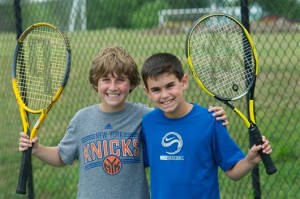 Everyday, campers excitedly head to the Outdoor Adventure area where they take to the climbing walls, ropes course, and zip line. The Ropes staff, with their extensive training and certifications, provide the arena for adventurous acts of bravery, even when first attempts aren’t exactly successful. Down at the waterfront, swimmers of all skill levels are diving in and learning new things too. At each and every program area, you find campers trying an activity for the first time as well as campers enjoying participating in an activity in which they are very experienced. Both of these scenarios prove beneficial to the camper; when children try new things and their peers are there to cheer them on and encourage their efforts, the campers gain a sense of camaraderie and inclusion. Because of this boost to their self, they’re more likely to want to continue improving. On the other end, when a camper is given the opportunity to display excellence in a field in front of his or her peers, there is a power in the identity found when the child feels confidence in this environment.
Everyday, campers excitedly head to the Outdoor Adventure area where they take to the climbing walls, ropes course, and zip line. The Ropes staff, with their extensive training and certifications, provide the arena for adventurous acts of bravery, even when first attempts aren’t exactly successful. Down at the waterfront, swimmers of all skill levels are diving in and learning new things too. At each and every program area, you find campers trying an activity for the first time as well as campers enjoying participating in an activity in which they are very experienced. Both of these scenarios prove beneficial to the camper; when children try new things and their peers are there to cheer them on and encourage their efforts, the campers gain a sense of camaraderie and inclusion. Because of this boost to their self, they’re more likely to want to continue improving. On the other end, when a camper is given the opportunity to display excellence in a field in front of his or her peers, there is a power in the identity found when the child feels confidence in this environment.
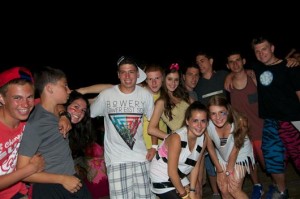 Situations like these mentioned, and hundreds more that present themselves, throughout a summer, create situations for campers to think situations through and move beyond the moment with resiliency in the camp setting and, furthermore, to return home with a new or better set of life skills. They have spent a summer away from mom and dad, and they have been exercising the act of identifying what they need and either obtaining it or asking our experienced counselors and staff to help them obtain it. They create friendships amongst kids like and unlike themselves from various parts of the country and even globe. They leave with a better sense of their own culture, having encountered cultures outside of their own. As they take part in the culture at camp, they are given a great sense of being a member of a team and the chance to belong.
Situations like these mentioned, and hundreds more that present themselves, throughout a summer, create situations for campers to think situations through and move beyond the moment with resiliency in the camp setting and, furthermore, to return home with a new or better set of life skills. They have spent a summer away from mom and dad, and they have been exercising the act of identifying what they need and either obtaining it or asking our experienced counselors and staff to help them obtain it. They create friendships amongst kids like and unlike themselves from various parts of the country and even globe. They leave with a better sense of their own culture, having encountered cultures outside of their own. As they take part in the culture at camp, they are given a great sense of being a member of a team and the chance to belong.

 570-798-9831
570-798-9831
 From the rituals they lead to open camp on the first night until the moment they say teary farewells to their final summers, summer camp plays as significant a role in older campers’ lives as they play in carrying on its traditions. There are a lot of camp articles that sing the praises of summer camp for young children, but few focus on the value of the camp experience for young teens. By the time many campers reach their teens, they already have several camp summers behind them. For them, it’s not really about newness anymore, but reliability and tradition: who is at camp, what is at camp, camp rites to which they’ve looked forward since they were young. In a period of child’s life that can be a roller coaster full of ups and downs that come at full speed, summer camp is oasis of stability. It’s solid ground, a safe place where teenagers go to be themselves and to let loose of the stress and strain that are inextricably part of the teenage years.
From the rituals they lead to open camp on the first night until the moment they say teary farewells to their final summers, summer camp plays as significant a role in older campers’ lives as they play in carrying on its traditions. There are a lot of camp articles that sing the praises of summer camp for young children, but few focus on the value of the camp experience for young teens. By the time many campers reach their teens, they already have several camp summers behind them. For them, it’s not really about newness anymore, but reliability and tradition: who is at camp, what is at camp, camp rites to which they’ve looked forward since they were young. In a period of child’s life that can be a roller coaster full of ups and downs that come at full speed, summer camp is oasis of stability. It’s solid ground, a safe place where teenagers go to be themselves and to let loose of the stress and strain that are inextricably part of the teenage years. small group of people with whom they’ve shared experiences since they were very young and with whom they continue to share experiences. They not only share experiences, they share memories that only a select group of others shares. Both give older campers a distinct sense of belonging. Regardless of who or what they are to their school peers the other ten months of the year, camp is a circle of inclusion that often extends far beyond the camp years. Older campers also benefit from privileges that come from being older. They’re tapped to lead camp activities, given leadership roles on teams of younger campers, and charged with being examples in honoring camp traditions. In short, older campers “train” younger campers how to be good campers. For many of them, being a role model and a mentor is one of the best aspects of camp. The pride in having played a role in a younger camper’s life is what brings many former campers back to camp in their adult years to work as counselors.
small group of people with whom they’ve shared experiences since they were very young and with whom they continue to share experiences. They not only share experiences, they share memories that only a select group of others shares. Both give older campers a distinct sense of belonging. Regardless of who or what they are to their school peers the other ten months of the year, camp is a circle of inclusion that often extends far beyond the camp years. Older campers also benefit from privileges that come from being older. They’re tapped to lead camp activities, given leadership roles on teams of younger campers, and charged with being examples in honoring camp traditions. In short, older campers “train” younger campers how to be good campers. For many of them, being a role model and a mentor is one of the best aspects of camp. The pride in having played a role in a younger camper’s life is what brings many former campers back to camp in their adult years to work as counselors.
